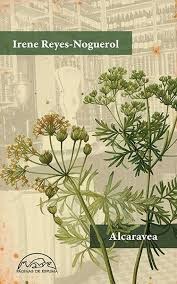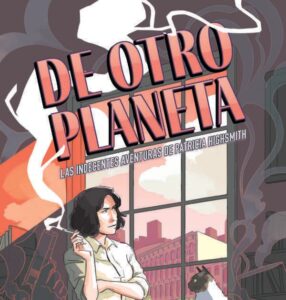
Original language: Español
Year of publication: 2024
Valuation: It’s very (very) good
Irene Reyes-Noguerol has written, at just 27 years old (fucking young people)one of the story books of the year. For sensitivity, for handling of language, for musicality and internal rhythm of the texts, for the poetic nature of the parts and the whole, for the varied catalog of human feelings that are shown in it, for the wonderful tribute to their ancestors (as I said when I was talking, a few days ago, about Tierra: any story can be interesting), etc.
And here I could end the review and tell you “hey, run to the bookstore or the library, ask your brothers-in-law for it as a Christmas gift and you’ll tell me”, but something else will have to be explained, right?
It will have to be said, for example, that there are twelve stories that make up Alcaravea and that its protagonists are, more or less in equal parts, anonymous characters and “historical” characters (perhaps here we should use the imaginary lives by Marcel Schwob), but that all of them are equal in the face of madness, death, love or pain.
It must also be said, and this is something that I find very interesting, that the texts have a mirror character. Three samples, although there are more:
- Madness as the center of the story in Carta a Theo, rapturous and desperate poem with which Vincent Van Gogh addresses, in a moment of lucidity, his brother, in Hear the sea, which would be his version “from over there” since it is this time Lope de Vega who addresses his beloved Marta in a wonderful love letter (and also confession), and in lost children, “the side over there” with a girl and a mother who hurts.
- The pain in the face of death and/or illness and/or loneliness, whether from Antonio Machado’s mother in Those blue daysfrom the mother of a “junkie” in The first stone or great-grandmother Paca, as a girl, in that wonderful Alcaravea that brings me echoes of María Luisa Bombal or Silvina Ocampo.
- The relationships between the twin brothers of egg shell and its reverse in Bastard.
Furthermore, we cannot fail to mention the variety of voices and registers: the epistolary genre, the interior monologue, the omniscient narrator, the dialogue… All of them always with a poetic background that gives the stories an intimate, personal and identifiable tone. .
And last but not least, we will have to comment on the attachment of the author and the texts to the origins. We have already talked about some of the family members who star in the stories, but we must not forget the constant references to Andalusia and various forms of the popular culture of this land: songs, expressions, lullabies, etc. References that could be “free”, yes, but in this case they are inserted perfectly into the stories.
In short, a book that is more dark than bright, of great beauty both in the continent (beautiful cover) and in the content, written with great sensitivity and showing a variety of registers that must be taken into account. A little gem that reminds us, just in case we have forgotten, that we can still face the darkness by following the wake of a lullaby.
Source: https://unlibroaldia.blogspot.com/2024/12/irene-reyes-noguerol-alcaravea.html


